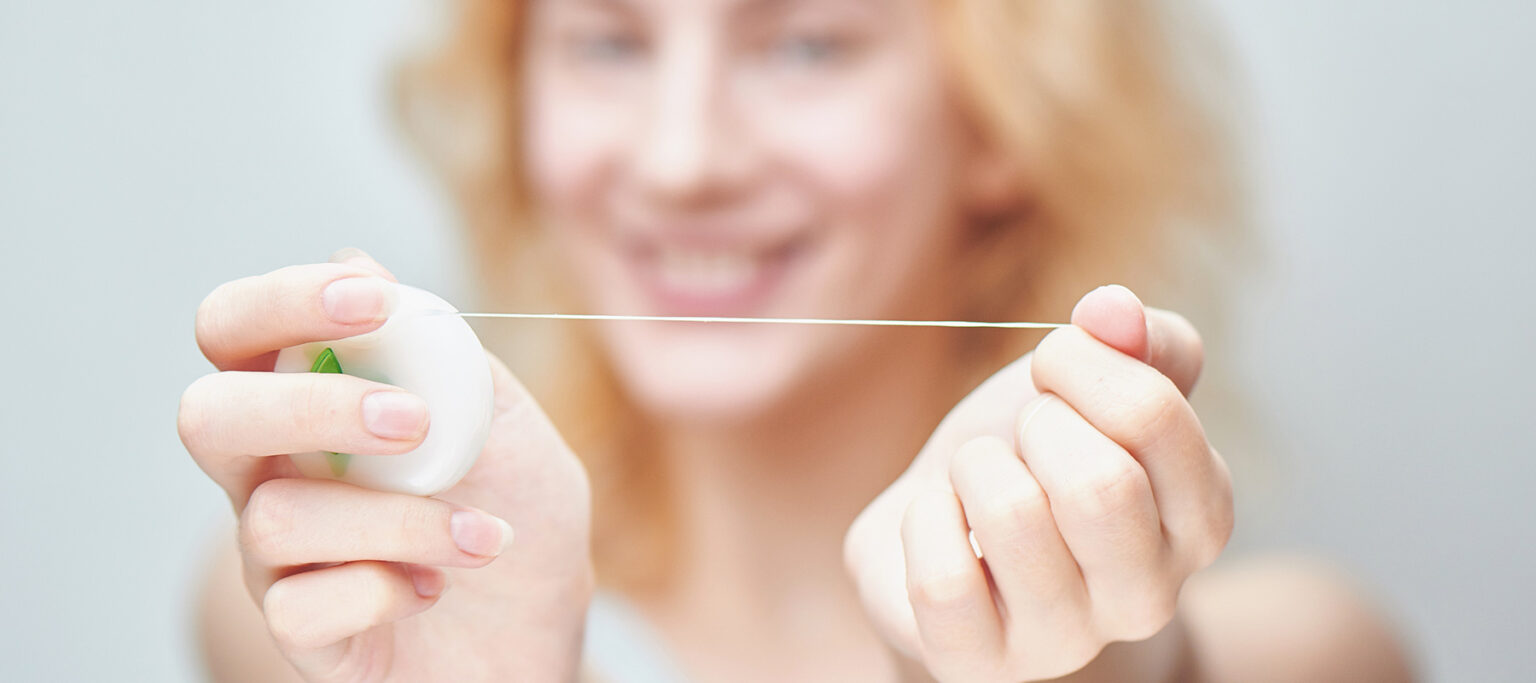
Each time you visit your family dentist in Grande Prairie, you’re probably asked how regularly you floss your teeth. Some may heed the dentist’s advice and floss every day; others may avoid pulling out the roll of floss except to clear out a few left-over food items!
Whatever your teeth-cleaning habits are, there’s no way to get around the fact that to have an overall clean and healthy mouth, flossing MUST be a part of your cleaning regime. Let’s take a look at why it’s so important!
Did You Know?
According to a Canadian Health Measures Survey, only 28% of Canadians floss at least five times a week. This is particularly startling when you consider that, without flossing, you miss cleaning 40% of your tooth surfaces.
What is the Main Purpose of Flossing?
We’ve all heard about plaque—that icky film you can feel building up on your teeth. The main purpose of flossing is to remove plaque. Plaque is home to millions of bacteria, and when it’s not removed regularly with brushing and flossing, it causes tooth decay and gum disease.
Plaque can build up on your tooth surfaces, along the gum line, and in between your teeth. Brushing can help remove plaque from surfaces and some along the gums, but your toothbrush cannot reach between your teeth. This is where flossing comes in. Flossing cleans the plaque from between your teeth, making it a vitally important step in maintaining an overall healthy mouth!
If plaque is left between your teeth, the bacteria will feed off the sugars in foods you eat and cause cavities and gum disease.
How Often Should I Floss?
In general, you should floss AT LEAST once a day, particularly before going to bed. However, if you snack frequently throughout the day, flossing after snacks will greatly reduce your chances of cavities.
To help ensure that you don’t forget, try making flossing a part of your morning and evening routine. Every time you brush, try to floss as well. This will help it become second nature and also reduce the chances that plaque will have a chance to build up.
If you begin flossing and your gums are bleeding, we encourage you to persevere! Bleeding can be an indication of gingivitis or inflamed gums but should begin to go away with regular flossing. If it doesn’t subside within a couple of weeks, book an appointment with our clinic to have a professional dental cleaning done and get you started on the road to a healthier smile!
